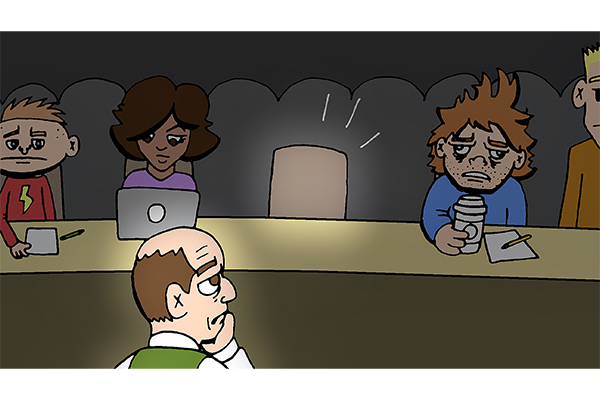Over the course of his 30 years of teaching, undergraduate studies professor Lee Walker has experienced panic and concern for students and their mental health. In these instances, Walker tries to check up on students one-on-one, but if the student doesn’t respond, he is unsure of what to do next.
“I think the number one duty of a teacher is to notice students and then pay attention to them, and it flows from there,” Walker said. “If you’re in distress, I think I’m going to notice.”
Walker said the resources UT offers for professors who are concerned for their students’ mental health are difficult to navigate in times of need.
“What I would like to have is a button,” Walker said. “But instead, now I start searching. The Counseling and Mental Health site shouldn’t be at the bottom of the UT homepage in the same small font and section as links to site policies and jobs. (The CMHC website) to me is all numbers and not actually people. This is bureaucratic. I still haven’t found a professor (concerns button).”
Missing classes, dropping classes, dropping class performance, falling asleep in class and changes in appearance can all be signs of mental health struggles professors can notice in students, Austin psychiatrist Elizabeth Truong said.
“After some conversation with the student first, sometimes the professor is really concerned,” Truong said. “Sometimes helping the student (learn about campus resources) or contacting that organization on behalf of the student is really helpful. Because if it’s their first time experiencing or struggling with mental illness, it’s really scary to get help. And most of the time, they don’t even know where to turn.”
The dean of the McCombs School of Business notifies their faculty of resources they can use when worried about student well-being, such as the Behavior Concerns Advice Line and attendance failure notices, at the beginning and middle of the semester, McCombs academic adviser Lovelys Powell said. But Walker said the time between needing and receiving the information can cause professors to lose track of which resources
to use.
“It’s fairly common for a professor to call or email me asking about what to do about a student who hasn’t been attending class,” Powell said. “I think students would be surprised how often faculty notice students missing.”
But even after a student drops a class, including in instances related to mental health, professors are not sent resources on how to help struggling students. Instead, they receive an email asking if the student who dropped was involved in academic dishonesty, Powell said.
“I think that’s representative of a mindset that is not optimum here at all,” Walker said. “We should be addressing student mental health needs before students are even considering dropping out of class or that semester.”
Plan II sophomore Matthew Aufiero, who has dropped a course for mental health reasons before, said professor support is most effective early on, before students think of dropping classes or withdrawing.
“I feel like when you’re at the point where you’re ready to actually drop a class, you may not be wanting to think about talking to your professor since you’ve already made up your mind,” Aufiero said. “I’d missed lots classes before dropping, and no one noticed.”





















